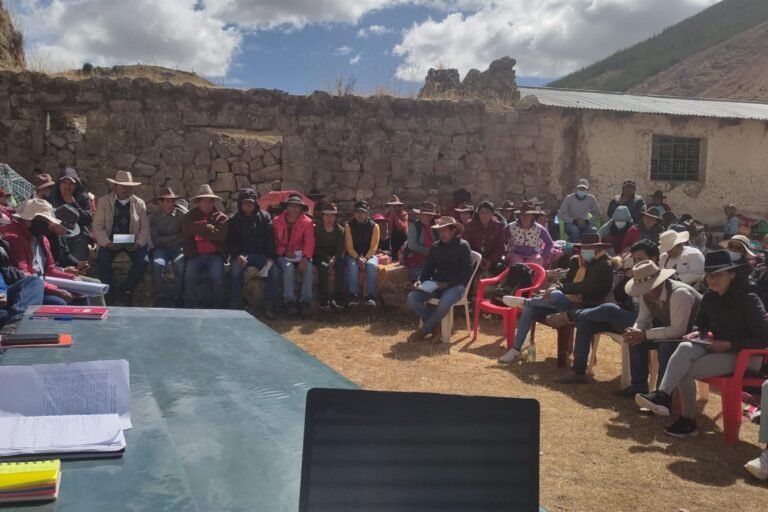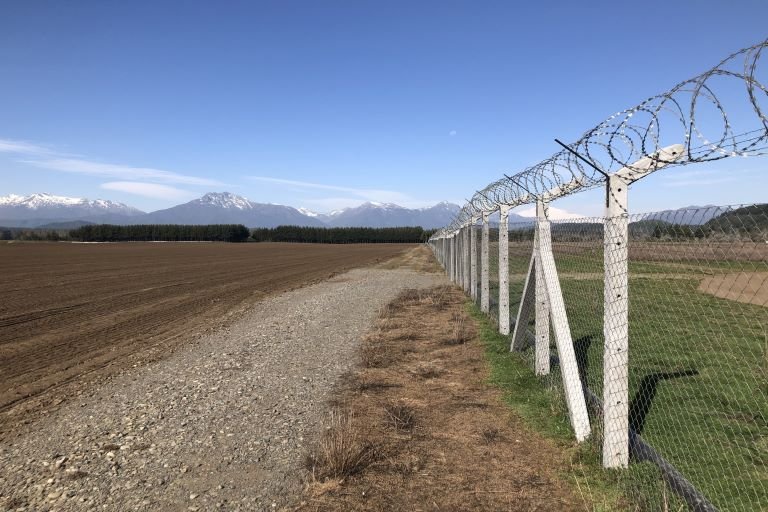- China was waiting for the Universal Periodic Review with the UN Human Rights Council, where other member states analyzed its actions abroad and made recommendations for improvement.
- Some of the most popular issues were related to environmental and social conflicts affecting Latin America, including violence against activists, rapid impact studies and poor monitoring of projects from dams and highways to mines and bridges.
- China has accepted a record 10 out of 11 recommendations, giving some hope that the country will change its approach to future projects in the region. But some analysts worry that the country will not fulfill its promise.
It has been more than a decade since China launched its Belt and Road Initiative, a multibillion-dollar global program to improve ties with Latin America and other developing regions. of investment in infrastructure and energy projects. But China has not always carried out those projects in a responsible way, which has raised an outcry about their environmental impact and human rights violations, especially against Indian citizens.
Recently, China was for the Universal Periodic Review with the Human Rights Council of the United Nations, where some member states reviewed its actions in other countries and made suggestions to improve. Some of the most well-known problems have been a reflection of the environmental and social conflicts affecting Latin America, including violence against activists, rushed impact assessments and limited oversight of projects from dams and highways to mines. and bridges.
China has accepted a record 10 out of 11 recommendations, giving some hope that the country will change its approach to future projects in the region.
“China’s recognition of these problems is an important step towards accountability and transparency,” Paulina Garzón, director of Latin America Sustentable, said in a statement.
More than 200 civil society organizations participated in the process, including a consortium from Latin America called the Collective on Chinese Financing and Investment, Human Rights and Environment (CICDHA), made up of groups from across the continent.

Before the audit, CICDHA reviewed 28 Chinese projects in Latin America and found that ten of them lacked a full and complete environmental impact assessment, suggesting that the companies many destroy the earth without fully understanding how to prevent pollution, reduce carbon emissions and avoid damaging the surrounding environment. .
One of the projects is the 90-megawatt Rucalhue hydroelectric plant in southern Chile, where the Mapuche-Pehuenche Indian community says it has not been properly consulted about its potential impact on the Bío watershed. Bío.
One is the San Carlos Panantza copper mine in Ecuador, which is made up of 13 mining blocks covering 41,000 hectares (101,313 acres), some of which covers the land of the Shuar Arutam indigenous people. Residents have expressed concern about the pollution of the Zamora River.
China has accepted the UN’s recommendation – officially submitted by Chile and Portugal – that the country implement strong laws to protect people’s rights to a clean, healthy and sustainable environment. It said that this can be achieved by conducting thorough research before projects begin.
“We hope that the adoption of this proposal by China will be an important step to have strong environmental assessments, which include the effective participation of the affected communities,” Lucio Cuenca, director of the Latin American Observatory of Environmental Conflicts , he said after China’s decision.

China also accepted the recommendation to create a safe environment for environmental and human rights defenders. Many projects across the region have been marked by violence against local communities who have spoken out against a wide range of issues, from pollution and deforestation to labor rights.
One of the worst cases involves the Las Bambas copper mine in southeastern Peru, where there were 72 complaints of human rights abuses between 2010 and 2023 , according to the Business and Human Rights Resource Center. Of the 72 complaints, 38 were attacks against anti-mining people.
In a similar recommendation, several countries have called for China to take steps to ensure that its companies and financial institutions respect human rights abroad, including through stronger consultation processes. priorities and accountability measures.
“The lack of available and effective mechanisms has made it difficult for affected communities to file complaints and obtain redress for damages caused by Chinese companies and banks in the region,” said Sofía Jarrín of the Alliance of Human Rights Organizations, a coalition based in Ecuador. .
While China accepting the recommendations can be considered a positive development, there is no guarantee that it will fulfill its promises. The state received six similar recommendations during the last review period, and nothing has changed since then, some analysts say.
In some cases, including the Las Bambas mine in Peru, projects appeared in the previous review and again this time.
To ensure that the region sees change before the next periodic review in four years, the CICDHA groups said that Chinese embassies in Latin America should start working as “organized channels ” of communication between businesses, financial institutions, government and society. This will make it easier to resolve social and environmental conflicts before they escalate, they argued.
There is also a need for better “correction and rehabilitation” measures for the adverse effects that have already occurred.
“This collaborative approach will not only allow a better understanding of problems and opportunities, but will also ensure that policies and measures taken are inclusive, transparent and beneficial to all,” the groups said.
Banner image: A river that flows near the Mirador mine in Ecuador. Photo by Beth Wald.
DESCRIPTION: Use this form to send a message to the author of this post. If you want to post a public comment, you can do so at the bottom of the page.
See related to this reporter:
Activists are asking for help to fight violence against the indigenous population of Nicaragua
#China #welcomes #recommendations #improve #environmental #conflicts #Latin #America